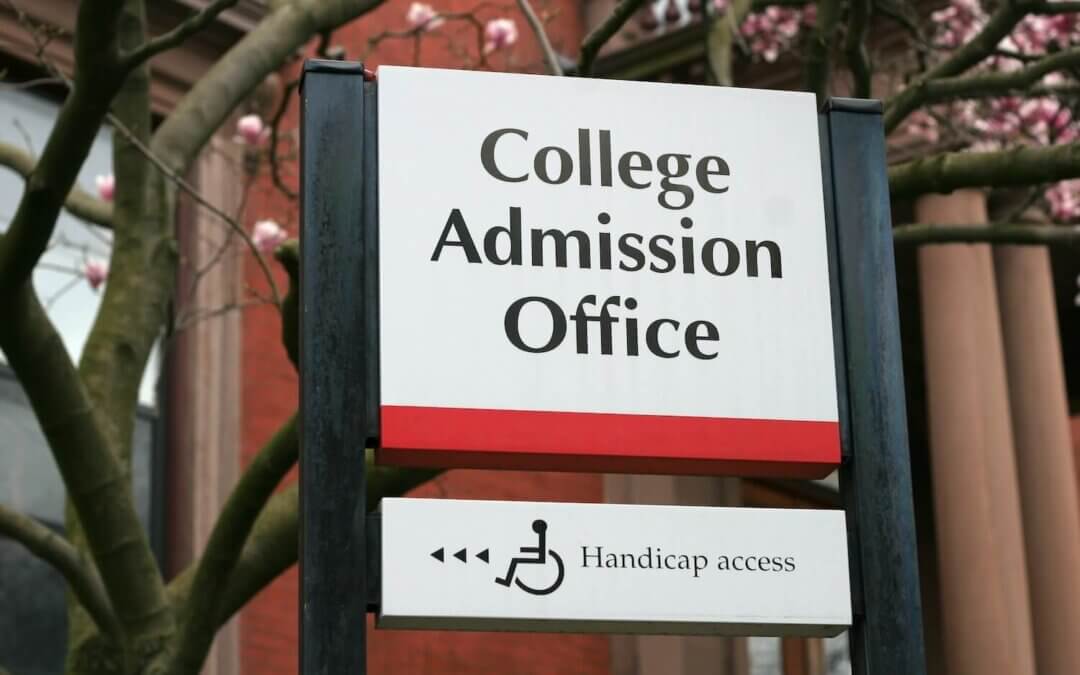What does your transcript say about you? Despite what you may think, the classes you choose to take can speak volumes to an admissions committee about what kind of student you are and where your passions lie.
When it comes to reviewing your transcript for college admissions, admission officers do not just care about your GPA—they pay special attention to the courses you have chosen to take within the context of your school, meaning they will look at the array of classes that were offered to you. Most importantly, they will pay close attention to whether or not you chose to take classes that allowed you to challenge yourself academically and explore your interests in a more rigorous environment.
For many high school students, course selection takes place in the late winter or early spring. If you are wondering how to build a transcript that will make you stand out to top colleges and universities, here are Command Education’s top 5 tips for course selection:
Take AP, IB, and Honors Courses.
Universities value academic rigor in high school. If you plan to apply to top universities, you should take AP, IB or honors level courses. If your school does not offer AP or IB classes, you should elect to take the most challenging courses they do offer, regardless of the attached label. Each year should be more challenging than the last, and you should pursue more accelerated and advanced courses than the year prior.
Be honest with yourself as you choose the classes you will take in the coming years. If you tend to struggle in science courses, taking AP Chemistry might not be the best option, especially if it will impact your performance in your other AP classes. If you are confident you can handle the higher workload in advanced classes and receive the best grades possible, take more advanced classes. Ideally, you should take advanced classes that are related to your intended major—like your activities list, your course load should convey your skills and interests to admissions officers.
In addition, it is important to excel on the end-of-year exam—strong test scores reflect the quality of the class and the student’s level of preparation and knowledge. Earning an A in AP United States History but only a 2 or 3 on the AP exam will call the course’s actual rigor into question.
Key Tip: Many students ask whether it is better to get a B+ in an honors course or an A in a regular course. The answer is neither! It is always better to get an A in an honors course. That being said, it is crucial to set yourself up for success, so you should strive to take honors courses in the subjects in which you most excel!
Take Core Classes all 4 Years of High School.
Most universities publish the minimum number of years a student needs to take core subjects (English, math, science, history/social science, foreign language) in order to be qualified for admission. Not all universities require a minimum of four years in all of these subjects, but most competitive and successful applicants to top-tier universities take all of their core classes throughout all four years of high school.
Key Tip: One single foreign language should be taken all four years. Do not plan to take one foreign language for three years and then switch to an introductory course in another language.
Some students take all of the language classes offered by their high school by the time they reach junior year. For example, some students take AP Spanish in their junior year, and their school does not offer another level of Spanish for them to take during their senior year. This is the one instance for which a student may substitute a core class for an elective, unless the student is particularly interested in studying a language in college. In this case, we recommend that these students take Spanish at a nearby community college or online.
Take Advantage of Electives.
Taking more specialized elective courses will add personality to your application and allow you to demonstrate your unique academic interests. Taking 1-2 electives per year can help students explore specialized subjects and become more involved in their school community. For example, a for-credit independent study, an elective on oceanography, or specialized modern history courses can all add a personal element to a transcript.
These courses can also help you develop skills that will be useful in future jobs and internships. You should plan to take elective courses that align with your intended major. If you plan to major in history, you should take a few AP history courses or unique history electives. If you plan to go into STEM, you should take a computer science course. Taking courses related to your interests demonstrates intellectual curiosity and will show colleges that you are passionate about your intended field of study.
Dual enrollment courses at your local university or community colleges are also great opportunities to explore unique coursework not offered by your high school. Additionally, you can seek out pre-college programs, MOOCs, and Coursera courses to explore academic subjects not offered at your high school. These alternate options will allow you to learn about a subject of interest more in-depth, especially if it is your intended field of study. Universities regard this initiative as a sign of an applicant’s investment in their own learning.












